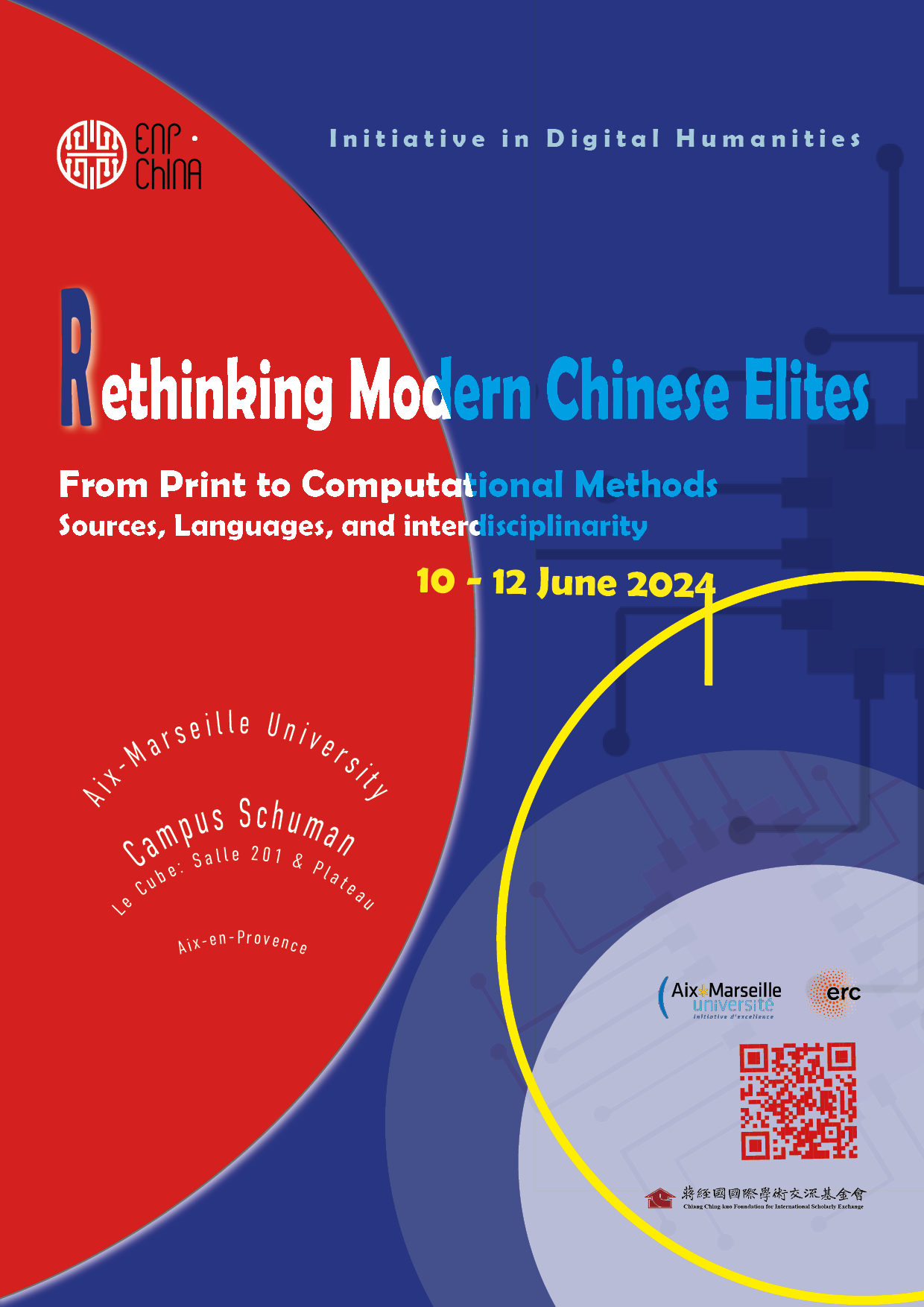Lena Henningsen to Present at the Rethinking Modern Chinese Elites Conference in Aix-Marseille on 10-12 June
Posted on May 12th, 2024
ChinaComx PI, Lena Henningsen, will present a paper at the conference Rethinking Modern Chinese Elites – From Print to Computational Methods: Sources, Languages, and Interdisciplinarity organized by the Elites, Networks and Power in Modern China project at Aix-Marseiile University on 10-12 June 2024.
Paper abstract:
It is a truism that Chinese culture is a culture of reading; and – with the exception of the time of high socialism – reading has always been a marker of cultural capital. Yet, how exactly did reading impact on individuals, society and the larger developments and transformations in Chinese history? What did Chinese citizens read when, why, and how? In how far was reading a transformative act for everyone – and what readings were limited to certain groups, to intellectual, literary or political elites? Studying historical reading practices poses a number of methodological problems, not least because it is very often a private, even intimate activity of which little historical documents exist. Extant accounts – often autobiographical sources – are ephemeral, anecdotal, and very often vague. To analyze reading practices during China’s long 1970s quantitatively, we developed the ReadAct database (https://readchina.github.io/readact.html) chronicling concrete historical reading acts as recorded in a broad array of life writing sources. In this paper, I will present findings from the database, taking into account the biases and blind spots in the sources and in the database. Considering that most accounts were written by urban educated youth sent to the countryside and considering what they chose to write about in their accounts (and what to leave out) the database chronicles how much of the social, literary and intellectual change commonly associated with the early years of the reform era had its origins in the reading quests of the rusticated educated youth. Moreover, these reading quests also anticipate how as a group these youths – many of them social and political outcasts at the time – would transform into the literary, cultural and / or intellectual elite of the early reform years.